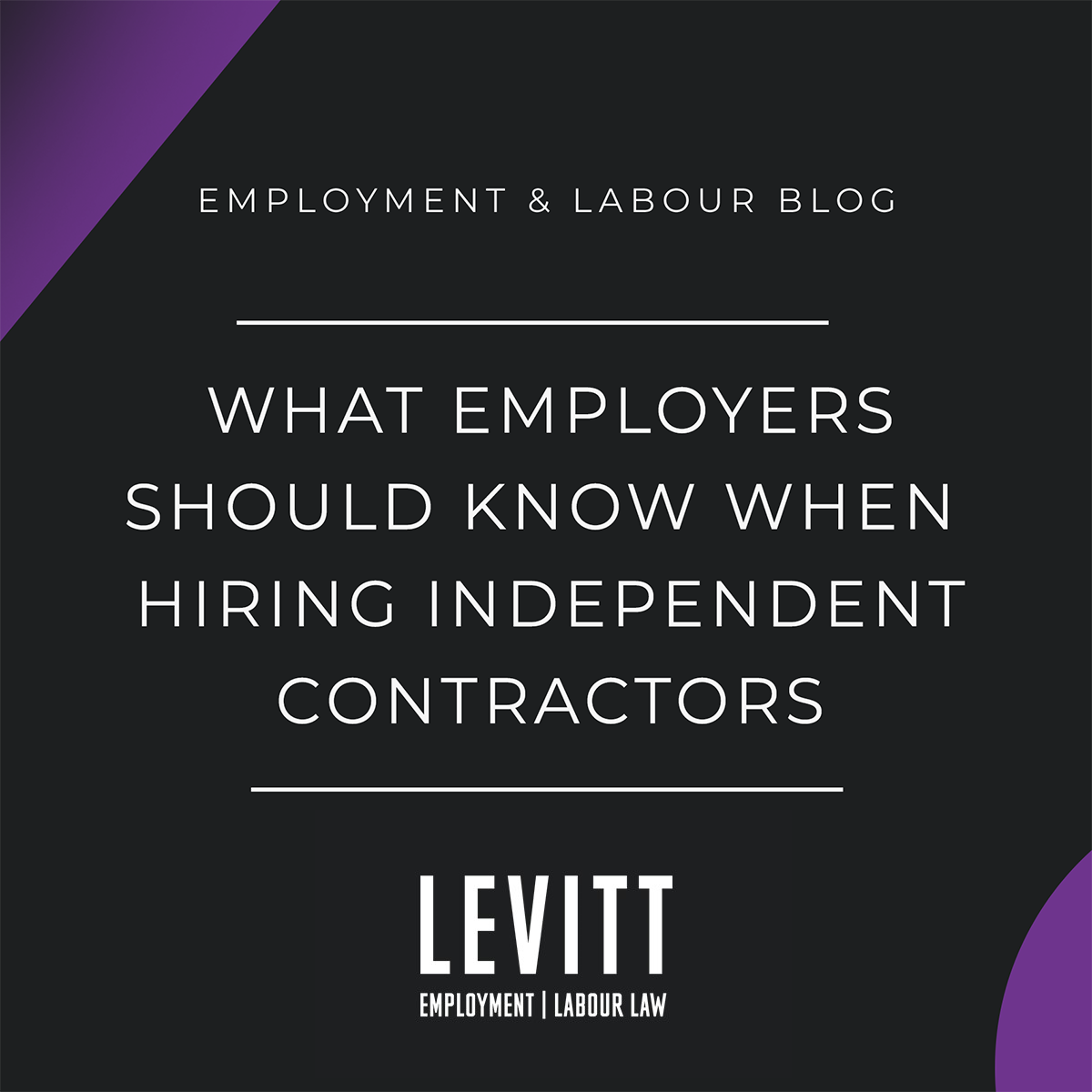When hiring a new employee, you may come across those who insist on being independent contractors instead of payroll employees. At the time, it may not matter to you whether they are on the payroll or not, as long as they are performing their job. Unfortunately, employers may find themselves in a lawsuit after terminating an independent contractor’s employment; here is why.
Many independent contractors, when employed by large companies, expect to have it both ways. They want the workload and security of their payroll counterparts but the tax planning benefits that the regular employees do not have. These contractors are aware of these advantages, so they insist on being classified as independent contractors when hired by businesses. It is profitable for independent contractors to classify themselves as such on their tax returns. Once an independent contractor is incorporated and classified as such, they can perform creative accounting. They allow themselves to generate substantial wealth through their earnings, salaries paid out to family members, and expenses deducted from income.
Contractors are happy with this arrangement until their employment contract is terminated. Once that happens, the independent contractor claims wrongful dismissal and sues the company for employee rights such as overtime, unpaid vacation and holiday pay.
Employers need to be aware of this tactic because it has been successful in the past for contractors. Previously, courts have not cared about descriptions in an employment contract or how the contractor filed their tax returns. They mainly focus on whether the contractor performs the same duties as an employee based on their day-to-day work structure.
To avoid this potential issue, employers should ensure their contracts with independent contractors are adequately written. First, it is essential to ensure no exclusivity for the contractor, meaning they can perform other contract jobs for other employers. This is because the courts focus on financial dependence, so if the contractor was exclusive to the company, the courts are more likely to rule in their favour.
Hiring contractors has an inherent risk for employers, and it is recommended that proper attention be paid to worker classification to avoid significant financial consequences. Employers should be prepared to draft a termination provision that can survive misclassification. The clause should include payment at least equal to the compensation required by the Employment Standards Act to ensure that it is enforceable if the court does find the worker to be an employee after all.
With these precautions, you should be able to avoid lawsuits that may come with hiring or terminating a contract of an independent contractor.
To learn more about whether or not you have a lawsuit contact us today. Choose Levitt LLP When You Can’t Afford to Lose.

